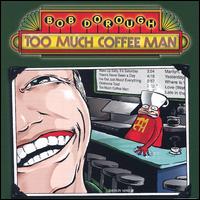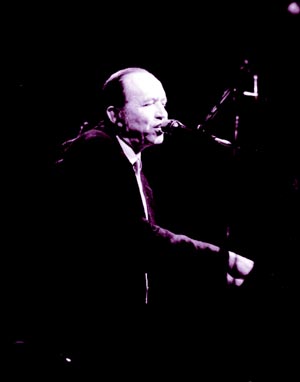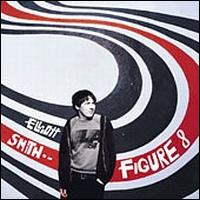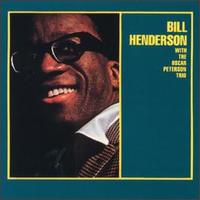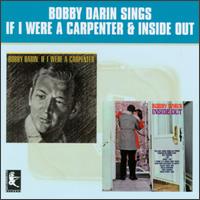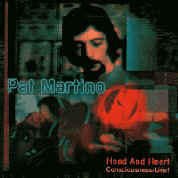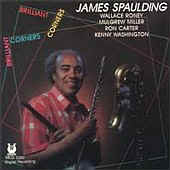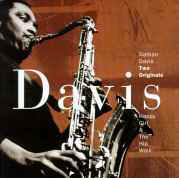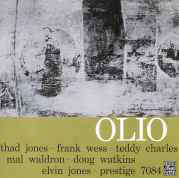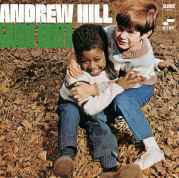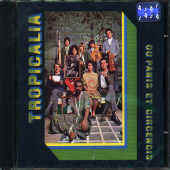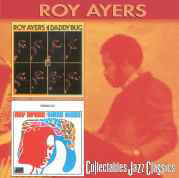|
|
Bob |
Bob Dorough - Too Much
Coffee Man (Blue Note) - In the words of Belle Steinberg Carroca (of
Brooklyn and for one month a year Miami Beach , Florida)...."Swannee....Can we talk
frank?" Robert Lrod Dorough, Bob to his friends - and after you see him it won't be long until you're one too - is one of the great joys of modern music. A true force of nature, standard bearer of the concept of "heart and soul" - hipster saint (though rounding the bend on eighty, he still kicks it like he's 25) and all around righteous teacher. He's like some kind of giant smile that rose with the sun seventy-some years ago and stayed up there in the sky, shining down for all to see. So...anyway....Bob's got him a brand new disc on the mighty Blue Note, and it is one of the best things he's done in his almost 60 year career. I'd just tell you to buy it (and wait patiently for a shower of thanks) but there are those who say I'm not to be trusted, so I must explain myself. The album, 'Too Much Coffee Man' (named for the comic book by Shannon Wheeler, and illustrated by same) jumps out of the gramophone with an energy and verve that would suggest that BD spends his days dancing on the ceiling like Fred Astaire all the while snapping his fingers, rolling his eyes and grinning like a man possessed. 'The Coffee Song (They've Got A Lot Of Coffee In Brazil)' is an old Sinatra number, but I just can't imaging ole red-eyes grabbing it by the ears and shaking the bejeezus out of it like Bob. He slows things down a little to illustrate his mastery of a ballad with 'Wake Up Sally It's Saturday' - written for his missus - and the touching 'There's Never Been A Day'. Dorough reprises his classic 'I've Got Just About Everything I Need' and of course it swings like a well oiled gate (an extra helping of supper for Phil Woods for his great alto solo). Longtime Dorough simpatico Dave Frishberg is heard from in 'Oklahoma Toad', in which our hero show us why he's one of the GREATEST vocalists of our time (some day Will Friedwald and I are gonna have a "talk" about some of the unkind cuts he takes at Bob and Mose Allison in his otherwise interesting book). Dorough's voice is like an huge totem pole, it's every nook and cranny telling an interesting story, and no matter how you check it out, awesome from any angle. If you can hear the title cut (originally written for a proposed animated version of Wheeler's cartoon hero, and who better to swing the toons that the Stationmaster of 'Conjunction Junction'??) without getting up and wiggling your big butt (I know...."Speak for yourself Grogan.") and waving your hands in the air like some second line New Orleans umbrella twirler, then you dead Jack. Cootie Williams' 'Fish For Supper' kicks it oooold school with a sly quote from 'Good Bait'. The rest of the disc is like a trip down the many moods of Bob Dorough: 'Marilyn Queen Of Lies' sports a typically wry lyric from the pen of Fran Landesman; 'Yesterday I Made Your Breakfast' has Bob navigating a rueful breakup ballad; 'Where Is The Song' is a another great melody, swinging solidly; and 'Love (Websters Definition) is an impressionist take on the literal definition of the word, originally penned in the 60's. The album's closer, 'Late In The Century' is Bob reminding us that we're all in the same boat, it's leaking, but it's not too late to start bailing. Unlike his last album, where the powers that be at Blue Note paired the great one with some ringers from their roster (like Joe Lovano), 'Too Much Coffee Man' is packed from front to back with Dorough's Eastern Pennsylvania homeboys, like Bill Goodwin (who's production deserves special mention), Phil Woods and Steve Gilmore, and is as well played and sung as anything you're likely to hear in this life. |
|
Elliott Smith - Figure 8 (Dreamworks) - If you're not hip to Elliott Smith yet, do yourself a favor and unlock your bomb shelter (Why too kay was a bust, y'know), crawl out into the sunlight and trade your Soylent Green for a copy of 'Figure 8'. Smith started in the band Heatmiser, but broke off into his own orbit to star making minimalist (though less so these days) albums filled with beautiful, somewhat melancholy melodies. 'Figure 8' is no exception. Increased budgets and instrumentation bring his Beatles jones somewhat closer to fulfillment, but things never get too crowded, leaving plenty of room for the tunes to expand. The album's single,'Son Of Sam', and 'Everything Means Nothing To Me' are my faves here, but the last tune,the spooky piano instrumental 'Bye' is a tiny work of art. |
|
Bill Henderson with the Oscar Peterson Trio (Verve) - This is a gem of a session from the mid-60's featuring one of the great unheralded voices of the era backed by one of the best piano trios ever. Henderson recorded for Vee Jay, Verve and some indie labels from the 50's through the 90's but this 1963 date was one of his best. Ironically, he is better know as a character actor (you've seen him on countless TV shows and films including the lost classic 'Inside Moves') than a singer, but he was/is fantastic (he contributed to Charlie Haden's latest disc). The fare his is for the most part standards, but they are well chosen, and the rich, smoky quality of Henderson's voice is the right vehicle to carry great lyrics. He takes Charles Trenet's 'I Wish You Love' (done to DEATH in it's day in countless maudlin versions) and reworks it as an eloquent declaration of affection. My fave here is 'The Folks Who Live On The Hill'. This tune (which I am absolutely in love with), was written by Hammerstein and Kern for an obscure movie musical about the early days of oil drilling in Pennsylvania (huh?) and had become the province of the hippest voices in jazz - it was long a staple of Peggy Lee's book. Henderson caresses the melody, and brings real meaning to the lyrics. |
|
Bobby Darin - Sings If I Were A Carpenter / Inside Out (Diablo) - If you're expecting 'Mack The Knife', you're barking up the wrong genre. These discs date from Darin's mid-60's foray into folk/pop, and despite what you might expect, is really quite good. Darin was one of the few performers of his day to take chances, over and over again, regularly defying expectations to go where he wanted to go. Both of these albums demonstrate that he had outstanding taste in songs, covering Tim Hardin (to much success with the hit single of 'If I Were A Carpenter'), Randy Newman, John Sebastian, Buffy Sainte Marie, John Denver (before he was John Denver) and several tunes by Alan Gordon and Gary Bonner (who wrote so many hits for the Turtles). There are tons of great songs here, - including the Gordon/Bonner obscurity 'Whatever Happened To Happy' done later by Gary Walker and the Rain - and Darin was a solid interpreter of this type of material. Very cool. |
|
Steely Dan – Two Against Nature (Giant/Reprise)After an absence of almost 20 years, the mighty Dan have returned, and they’re loaded for bear. Blasé, cynical bears that is. Those of you that have followed the slow progress of the SD machine since 1980’s ‘Gaucho’ will recognize ‘Two Against Nature’ as part of a natural flow. The spiny exterior of Pretzel Logic era SD has been sanded down, and the overall feel is (like on Donald Fagen’s most recent solo outing ‘The Kamakiriad’) relaxed. There are lots of familiar lyrical motifs, a couple of radio friendly (though not formulaic) cuts, especially ‘Cousin Dupree’, and the usually jaundiced lyrics wrapped in elegant packaging. I have heard from those that weren’t grabbed immediately by this disc. To them I say…keep listening, it’s in the sauce. |
|
Bud Powell – A Portrait Of Thelonious (Columbia/Legacy) An early 60’s session, recorded during Powell’s self-imposed French exile, ‘A Portrait of Thelonious’ is one of the master’s more consistent later dates. Produced by Cannonball Adderly and featuring his usual backing from fellow expat Kenny Clarke on drums and Pierre Michelot on bass, this album is ostensibly a tribute to Monk. Powell was one of the earliest, and always one of the best, interpreters of Monk’s music. His versions here of ‘Off Minor’, ‘Ruby My Dear’, ‘Thelonious’ and ‘Monks Mood’ (a highlight), as well as a couple of blues and a standard, prove that while time and troubles had robbed Powell of much of his early fire and brilliance, even then he was still a formidable performer. |
|
Pat Martino –
Head and Heart (32 Jazz) This compilation of two of
Martino’s early 70’s sessions for Muse (another great building block in 32
Jazz’s reconstruction of that label’s catalogue) is a solid introduction to one
of the better post-Montgomery proponents of jazz guitar. Both albums feature backing from
members of Catalyst (Tyrone Brown, Sherman Ferguson and Eddie Green). The first disc is
the 1974 LP ‘Consciousness’ contains a nice mix of standards and originals. John
Coltrane’s ‘Impressions’ (built on the chords of ‘So What’) is a
cooker, and Martino’s take on Benny Golson’s ‘Along Came Betty’ is
also excellent. My fave here is a nice reworking of Joni Mitchell’s ‘Both Sides
Now’. The second disc, 1972’s ‘Live’ (recorded at NYC’s Folk City) allows the band to stretch out on three long tracks, two originals and Bobby Hebb’s ‘Sunny’, and is a much freer outing. While some might not have the tolerance for the long, sometimes directionless jams (I find myself going back to the first disc more often), at the great 32 Jazz discount price, it’s worth picking up. |
Booker Ervin |
Booker Ervin /
Pony Poindexter/ Larry Young – Gumbo (Prestige) While the
personnel listing on the cover is a little misleading (the disc is composed of two
sessions, one with Poindexter, one with Young , with Ervin on both) this is quite a good
collection of 1963 vintage hard bop. The Poindexter/Ervin session is something of a
concept session, featuring the former’s musical impressions of his Louisiana boyhood.
Poindexter plays both alto and soprano saxes, and the tunes are actually quite good. Ervin
as always is amazing, still the most sorely underrated tenor of the 60’s. The Ervin/Young session features an early taste of the latter’s broadening conceptual horizons. Despite the reknown of those who recorded earlier or more frequently (Smith, McDuff, Patton etc.) Larry Young was THE great hard bop organ stylist of his era. His work here may not be as ‘out’ as some of his classic Blue Note sessions, but it’s worth hearing nonetheless. One curiosity, the tune listed here as ‘Absotively Posalutley’, and credited to Poindexter is actually Young’s own ‘Backup’ |
|
James Spaulding – Brilliant Corners (32 Jazz) Another Muse reissue from 32 Jazz, this 1988 session from longtime Blue Note session man James Spaulding is one his best outings as a leader. Spaulding, like trumpeter Woody Shaw contributed brilliantly to many classic Blue Note sessions (his work on Bobby Hutcherson’s ‘Patterns’ album is stunning) , but was never given the chance to record as a leader for the label. His work on Muse, from the 70’s and 80’s was of consistently high quality. This session, composed almost entirely of Thelonious Monk compositions finds Spaulding (playing alto and flute) backed by Wallace Roney (trumpet), Mulgrew Miller (piano), Ron Carter (bass) and Kenny Washington (drums). Covering uptempo numbers like ‘Let’s Cool One’ and ‘Little Rootie Tootie’ and Monk’s great ballads like ‘Ask Me Now’ and ‘Reflections’, the group is spurred on aggressively by Spaulding’s biting alto and flute. One of the two non-Monk tunes, the bop classic ‘Little Willie Leaps’ is a standout. |
|
Nathan Davis – Two Originals (MPS) I have to admit, that before I saw this at the store I had never heard of Nathan Davis. However, when I saw the sidemen on the dates, including trumpeters Carmell Jones and Woody Shaw, and Larry Young in a rare performance on piano, I had to have it. A compilation of two mid-60’s LP’s on the German Saba label (Happy Girl & The Hip Walk) , ‘Two Originals’ is a very solid set, containing several great examples of inside/outside playing. Featuring Davis (who has spent the last 30 years as a music educator) on tenor , flute and Trane-inflected soprano on many originals, a few well selected standards and tunes by Larry Young and Carmell Jones, it has rapidly become one of my favorite discs. Davis was (is) a player of great range and exceedingly good taste, with an alternately biting/warm tone not too far removed from Joe Henderson’s playing in the same era. This is easiest to see in the version of Larry Young’s ‘Theme From Zoltan’ , previously recorded by Young (on organ) and Shaw with Henderson on Young’s essential ‘Unity’ (one of the recent series of ‘Rudy Van Gelder’ reissues on Blue Note and a must have). Other standouts are ‘The Flute In The Blues’, ‘Evolution’ and ‘The Hip Walk’. If you can find this at the store grab it. If you can’t, try the internet. If that fails, what better excuse for a timely trip to Europe? |
|
Thad Jones/Frank Wess/Teddy Charles/Mal Waldron/Doug Watkins/Elvin Jones – Olio (Prestige/OJC) I was drawn to this reissue by the presence of Charles (always a fave), and the stellar cast around him. While the liner notes suggest that this group transcended the ‘jam session’ format of the date (recorded in 1957), this is not always the case. While the material is certainly up to snuff ( three compositions by Charles, one by Waldron and a Gershwin standard), the impromptu grouping of the players, and the stylistic distance between some of them occasionally makes for a slightly jumbled feel. The group manages to tighten up nicely for Charles’ ‘Dakar’ and the take of ‘Embraceable You’ is also nice. In the end, strictly for Charles completists. |
|
Tina Brooks – Minor Move (Blue Note Connoisseur Series) Buy this. Now. Tina Brooks’ career might have been short, but he was one of the best tenors/composers to record for Blue Note, and all of his relatively small catalogue is essential. While ‘Minor Move’ only contains two Brooks originals (Nutville and Minor Move) instrumentally he is at the top of his game, backed solidly by Lee Morgan, Sonny Clark , Doug Watkins and Art Blakey. Of the standards, his take on ‘Star Eyes’ is a standout. Blue Note even managed to unearth an alternate take of the title cut. Grab it. It bothers me that Blue Note has failed to keep all of Brook’s sessions as a leader in print. All of them except for ‘The Waiting Game’ (scheduled for release this fall) have been out at one time or another, as is the case with all of his sideman appearances with the exception of Freddie Redd’s ‘Redd Blues’ (not counting the Mosaic set, which is also out of print). This needs to change. |
|
Davy Graham – Folk, Blues & Beyond (Topic Records) / The Guitar Player…Plus (See For Miles) Largely unknown here in the States, Davy Graham was one of the most groundbreaking and influential guitarists in 1960’s England. An eclectic stylist (not unlike John Fahey in the US) Graham managed to take the acoustic guitar in new directions, presaging masters like Bert Jansch and Nick Drake. His style was an amalgam of folk, blues, eastern music and jazz, and he managed to bring all of these elements together without diluting any of them. 1964’s ‘Folk, Blues and Beyond’ includes some classics of the folk/blues genre (Cocaine, Don’t Think Twice, It’s Alright), several jazz tunes (Bobby Timmons’ ‘Moanin’ and Mingus’s ‘Better Git It In Your Soul’ among others) and some excellent originals. Graham was adept in all of his chosen genres, especially the jazz tunes which he handled with surprising ease. ‘The Guitar Player…Plus’ collects the 1963 ‘The Guitar Player’ LP and his rare 1962 collaboration with Alexis Korner, ‘3/4 AD’). Though See For Miles has done an atrocious job remastering this disc (the stereo separation is horrible and the drums are much higher in the mix than the guitar), it’s still worth a listen for Graham’s versions of tunes by Sonny Rollins, Cannonball Adderly, Teddy Edwards and Kenny Dorham, as well as the original version of ‘Anji’ later covered to much success by Bert Jansch and Simon & Garfunkel |
|
Andrew Hill – Grass Roots (Blue Note Connoisseur Series) Another great reissue from the Blue Note Connoisseur Series, this 1968 date wherein Hill is joined by Lee Morgan and Booker Ervin, is expanded to include an earlier session with Woody Shaw and Frank Mitchell replacing Morgan and Ervin on recordings of much of the same material. While the compositions are more accessible than much of Hill’s 1960’s work, there is still much of the flavor that made albums like ‘Black Fire’ classics. It helps to take his melodies out of the piano trio format and wrap them around the killer Morgan/Ervin front line. It’s also great to hear the differences between Morgan and Shaw (two very different stylists) on the alternating versions of ‘Venture Inward’, ‘Soul Special’ and ‘Bayou Red’. |
|
Various Artists -
Tropicalia 30 Anos – (Polygram Brazil) This boxed
set of five CD’s represents the cream of Brazil’s late 60’s Tropicalia
movement. An amalgam of native musics, Bossa Nova and mid-60’s pop and psychedelia,
the Tropicalia movement gave birth to the careers of Brazilian musical giants like Caetano
Veloso, Gilberto Gil, Tom Ze and Gal Costa. Only recently coming onto the radar screens
here in the US, - due in large part to the efforts of David Byrne’s Luaka Bop program
of reissues and new discs by Ze and Os Mutantes - the Tropicalia movement was not only
musically far-reaching, but was also a political hot button for Brazil’s repressive
government. Both Veloso and Gil ended up spending years in exile. But don’t let the
politics mislead you. This was first and foremost great music. The set includes full albums by Veloso, Gil, Costa and Os Mutantes as well as the 1969 group album (pictured, left) these artists recorded with Tom Ze, Nara Leo and others. It says something about a supposedly open minded era, that this music didn’t catch on outside of Brazil. Sure, most of it’s sung in Portuguese, but the music is right in line (if a bit more eclectic) with the pop-rock sounds of the day. My faves in the set ate the ‘Gilberto Gil’ album (surely the Brazilian equivalent of ‘Revolver’ and ‘Sgt. Pepper’, and the debut album by Os Mutantes. The Os Mutantes LP is a psychedelic classic, managing to blend Beatle-esque pop with French Yeh-Yeh , samba and Bahian tribal beat. Listeners will surely want to go on to grab the domestic reissues of their other LP’s on Omplatten. Hopefully some of these CD’s will find individual, domestic release, as well as other LP’s from the same era by these artists (though the later work of Veloso and Gil is readily available in any well stocked world music section). I have also seen some of these albums for sale individually with internet retailers like Dusty Grooves |
|
Roy Ayers – Daddy Bug / Virgo Vibes (Collectables/Atlantic) Before he was the king of smooth soulful disco/jazz in the 70’s, vibeist Roy Ayers spent some productive years with the Jack Wilson Quartet , and as a protégé of Herbie Mann. These two albums are from his late 60’s tenure with Atlantic, and are both worth hearing. ‘Daddy Bug’ is the more heavily arranged of the pair, and features a few Jobim and Bacharach classics next to more unusual fare like Laura Nyro’s ‘Emmie’. ‘Virgo Vibes’ (from 1967) features two hot combos, both with Charles Tolliver on trumpet and one each featuring Harold Land and Joe Henderson on tenor. The sounds here are a little heavier, but the two albums flow together surprisingly well, and offer a glimpse of Ayers before he slid into commercial success/artistic oblivion. |
 The Platters That Matter
The Platters That Matter 